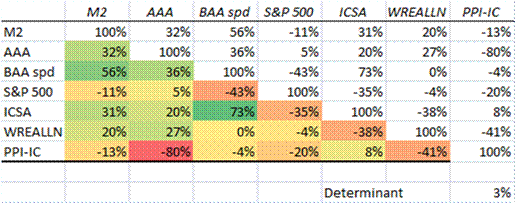The Rules, Part XXIX
Risk premiums should never be capitalized, they should only be taken into income as earned.
This may end up being another odd post of mine.? I’m going to start writing about bank regulation, but I will end up talking about monetary policy.
There are many people who hate the rating agencies. They hate them because they are a convenient target, and most people don’t understand what they do. Rating agencies provide opinions. Nothing more, nothing less.
Many people would like to get rid of the rating agencies. But it’s not that easy. Regulators outsource their credit rating function to the rating agencies because they don’t want to do that work.
There is a way to eliminate the rating agencies, and I have written about that before. But the idea is so radical, that the banks would rather have the rating agencies exist, than use my idea.
So what’s my idea? Simple. If you were setting up a portfolio, what would you assume would be the minimum that you could earn on the portfolio? My minimum would be buying Treasury bonds and earning interest on them.
So if I am looking at a portfolio of risky assets, I would split each asset into two. I would mirror the cash flow pattern of each asset, and construct an equivalent Treasury portfolio to mimic the cash flows. All of the cash flows above that amount from the risky asset are the risky cash flows. The amount of capital that banks hold as reserve against losses should be proportionate to the present value of risky cash flows.
Unlike my last piece on this, I am not saying that the whole present value of risky cash flows should be held as capital against losses. But the regulators should use this, if we are not using rating agencies, as a proxy for credit risk in bank asset portfolios.
Why is this a good measure of credit risk inside banks? The market for lending is fairly efficient. Debts that have more risk have higher interest rates.
This measure of risk benefits from the concept of simplicity. It can be applied everywhere. And, there is good theoretical justification for it. Any return that is upon the government bonds is subject to question.
But suppose we decided to use this as a major portion of our formula for regulating bank capital. What would happen to monetary policy?
Well, if the Fed tries to do something similar to ?operation twist” it would require banks to hold more capital against their positions, because the safe interest rate falls, it causes the risky portion of each loan to rise. As such, any sort of ?operation twist” would fail, because the rise in capital levels, would blunt any advantage from over Treasury interest rates.
From my vantage point, it would be a real plus to have monetary policy neutered in that way. The Fed, should it deserve to exist, should be concerned with the banking system and its solvency. It should not be concerned with the overall level of interest rates. If lowering interest rates lowers the judgment of solvency, then that would restrain the Fed from being too aggressive in lowering rates. And that would be good. The Fed has generally not succeeded with monetary policy. They have been too loose in the past, leading to the problems of the present.
And, as I have said before, we should not have unelected bureaucrats driving our economy, rather, we should have Congress do it because we can vote them out.
That’s all for now. Thanks for reading me. I appreciate all of my readers.



